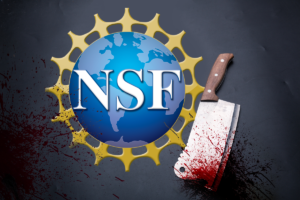I have posted two blogs about patents over the past couple of years [The Importance of Patents and Patents and Plants]. In the first, I noted that “patents are an important tool for protecting the intellectual property of inventors and companies. In the information age, intellectual property is one the most important assets a company can have.” I also noted that the patent process has been subject to a lot of criticism. “Companies have patented genetic material they have harvested (not invented) and, as a result, we pay higher health costs. And people are increasingly trying to patent ridiculous ideas with little or no value.” The post also noted that defending patents has become so expensive that many people believe that only companies with deep pockets can really rely on the system. As a result, some analysts believe that patents discourage rather encourage innovation. My conclusion was that “small companies need to be well funded to navigate the patent system, but the effort is worth it.”
The second post was written during last year’s food crisis and it discussed the fact that large “corporations and academia [were] scrambling to find strains of popular food sources that will yield larger harvests, resist the vagaries of climate change, and repel damaging insects.” At the heart of the quest for better crops lies a big question about patents: Should companies be able to patent entire gene lines as opposed to specific hybrid plants. In that post, I noted that large agricultural companies were using the “same arguments [that have been] made in the medical field [by] companies [that patent] human genes. It’s an emotional and moral issue as well as an economic one.” In a case scheduled for review by the U.S. Supreme Court, the issue of whether companies can patent business processes will be argued [“Justices to Weigh Issue of Patenting Business Methods,” by Adam Liptak, New York Times, 1 June 2009]. The case involves some of the same dilemmas that patent authorities wrestle with in other tough cases. Can a company patent a broad idea or must ideas be more discrete and unique? Opponents of broad patents cite arguments used by an appellate court justice, Judge Richard A. Posner, “who said that business method patents created the potential for ‘enormous monopoly power (imagine if the first person to think up the auction had been able to patent it).'”
In the first post mentioned above, I wrote:
“Innovative companies are the engines that keep the economy growing. In an article about innovative companies [“The World’s Most Innovative Companies,” 24 April 2006], BusinessWeek said this:
‘Today, innovation is about much more than new products. It is about reinventing business processes and building entirely new markets that meet untapped customer needs. Most important, as the Internet and globalization widen the pool of new ideas, it’s about selecting and executing the right ideas and bringing them to market in record time. In the 1990s, innovation was about technology and control of quality and cost. Today, it’s about taking corporate organizations built for efficiency and rewiring them for creativity and growth.’
“I have argued for some time that we sit on the cusp of a new era that requires an entirely new organizational framework. Technology is just maturing that will permit this organizational change to take place. I believe this new paradigm … will be a blending of technology, business logic, and cognition. That mixture will foster both the flexibility and adaptability needed by organizations in the future.”
The case that will be argued before the Supreme Court is all about whether companies that reinvent business processes and build entirely new markets that meet untapped customer needs can patent those reinvented processes. Liptak underscores the importance of the case by quoting an academic who submitted a briefing in the case.
“‘This is the most important patent case in 50 years, in particular because there is so much damage and so much good the court could do,’ said John F. Duffy, a law professor at George Washington University who submitted a brief in the appeals court in support of neither side. ‘The newest areas of technology are most threatened by the issues at stake here,’ Professor Duffy said. ‘The court taking this is likely to make a lot of people nervous, including software manufacturers and biotechnology companies.'”
Liptak reports that last October, “the United States Court of Appeals for the Federal Circuit in Washington significantly narrowed the processes eligible for patent protection, ruling that only those ‘tied to a particular machine or apparatus’ or transforming ‘a particular article into a different state or thing’ qualified.” In other words, ideas and concepts were not patentable unless they were tied to something physical. You can understand how this ruling might make companies that consider their intellectual property their most valuable assets very nervous. Liptak continues:
“In urging the Supreme Court to hear the case, the petitioners said the appeals court’s decision put tens of thousands of patents at risk. They added that the decision ‘threatens to stifle innovation in emerging technologies that drive today’s information-based economy.’ The appeals court attracted supporting briefs on both sides of the issue from many kinds of businesses, including management consulting, computer software, insurance and tax accounting firms.”
This particular case involves Bernard L. Bilski and Rand A. Warsaw, who “had sought to patent a method of hedging risks in the sale of commodities, including the risks associated with bad weather. The appeals court ruled against them, and it disavowed statements in earlier cases suggesting that business processes could be patented so long as they yielded useful, concrete and tangible results.” According to Liptak, “the federal government urged the Supreme Court not to hear the case, saying the hedging method at issue was plainly not patentable and that the case did not affect software or more exotic business methods.” If the Supreme Court upholds the lower court’s decision, thousands of previously issued patents could become worthless. If it overturns the decision, then recent patents applications that have been denied will have to be reevaluated.
“Courts have relied on the decision of the appeals court since October to deny patent protection to methods of marketing software products, detecting fraud in credit card transactions and creating real estate investment instruments. In March, a federal judge in San Francisco wrote that the appeals court’s decision signaled that ‘the closing bell may be ringing for business method patents, and their patentees may find they have become bagholders.'”
Whichever way the court rules, someone is going to be unhappy.




